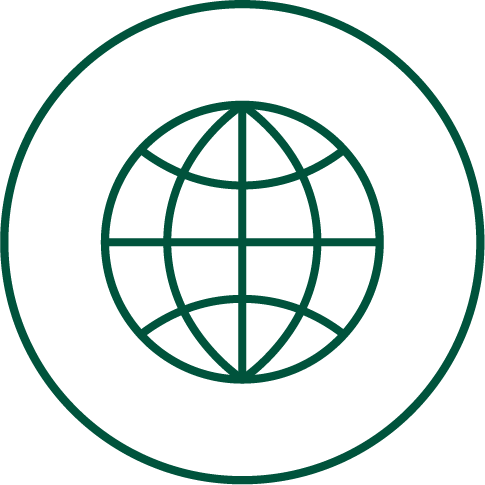
Written by Cathy Kremer
Dear reader,
Welcome to Publyon’s EU Digital Policy Update (DPU). As the political season kicks off, we are back with the hottest insights on the latest EU policy trends and developments to keep you informed. In her annual State of the Union address, Commission President Ursula von der Leyen outlined what lies ahead for digital and tech in the coming year. Meanwhile, drones and the appointment of a real Albanian AI “minister” are featured in our geopolitical corner. And as always, we dive into the latest AI, cyber, and other digital policy news.
Europe’s bold plan for sustainable growth, the “Clean Industrial Deal”, represents a major shift for EU businesses, especially in energy-intensive sectors. Don’t miss your chance to engage with the Commission to shape this deal and influence the policy direction for the next five years.

The spotlight
Von der Leyen’s “Independence Moment”: Digital sovereignty in the spotlight
On 10 September, Commission President Ursula von der Leyen delivered her 2025 State of the Union under the banner of Europe’s “Independence Moment”. While defence and security dominated the address, digital policy was framed as a pillar of Europe’s sovereignty and competitiveness.
A sovereignty agenda built on AI and innovation
Von der Leyen stressed that “a European AI is essential for our future independence.” To deliver, the Commission will back the creation of AI gigafactories across 16 Member States, supported by a future Cloud and AI Development Act. She also welcomed the industry’s recent AI & Tech Declaration, signed by 39 CEOs, underlining the role of European champions in driving sovereignty. Startups and scale-ups were explicitly highlighted, with a forthcoming Scaleup Europe Fund expected to mobilise billions in private capital for high-growth firms.
Equally, von der Leyen reaffirmed Europe’s right to regulate Big Tech, dismissing US pressure to water down landmark rules like the DSA and DMA. “We set our own standards, we set our own regulations,” she stressed.
Deregulation meets digital euro
The speech also reinforced the Commission’s omnibus simplification package, designed to cut red tape and deliver €8 billion in savings for companies. Von der Leyen signalled that a digital euro will form part of this drive to make business easier and more integrated across the Single Market.
Families first in the digital sphere
On social media, von der Leyen warned against the “tsunami of Big Tech flooding family homes.” She floated the idea of age restrictions for minors’ access to social media, referencing Australia’s approach which imposed a complete ban, and announced a forthcoming panel of experts to advise by year-end. This signals that the EU could be preparing the ground for new online safety rules centred on children’s wellbeing.
What it means for business
For Europe’s digital ecosystem, the address signals both opportunities and gaps. Startups and scale-ups in AI and cloud stand to benefit from new financing and infrastructure, while established players gain clarity on the Commission’s resolve to enforce its rulebook. However, cybersecurity, a longstanding business concern, was absent.
Perceptions in Brussels
Startups and European tech champions stood out in von der Leyen’s address, placed firmly at the centre of the EU’s digital sovereignty agenda. In contrast, the cybersecurity community was left without new commitments, while the short-term rental sector was unexpectedly singled out for future regulatory action. Between ambition and restraint, the Independence Moment leaves Europe’s digital ecosystem facing both fresh opportunities and lingering uncertainties.

Impact analysis for your business
Our free policy updates keep you informed, but is that enough? With our tailored EU Digital Policy Updates you’ll receive:
- Custom insights on how upcoming policy changes might impact your business;
- Strategic advice from your dedicated policy consultant on how to turn challenges into opportunities;
- Early warnings about key legislative developments.

Geopolitical corner
In Publyon’s geopolitical corner, we explore how geopolitics intertwines with digital (policy) developments. Read on to learn more about what the hottest topics were this month!
Sunshine politics: Albania appoints an AI “minister”
Tirana just made a world-first move, unveiling “Diella”, a virtual, AI-powered minister tasked with overseeing public procurement. Prime Minister Edi Rama sells it as a path to corruption-free tenders and a fast track to EU-compatible governance. The pitch is bold; the governance questions are bigger: accountability, auditability, bias and who is legally on the hook when algorithms “decide.”
Practical reality check: Diella already underpins e-Albania services, so this is less sci-fi leap, more aggressive scaling of a live system into a political role. Expect Brussels to watch closely as a de facto test case for AI in public procurement and administrative decision-making.
Paper maps or spoofed signals? The von der Leyen flight saga
Reports of suspected Russian GPS interference during President von der Leyen’s approach to Plovdiv triggered a week of whiplash. Early claims of jamming met counter-claims from flight-tracking data and Bulgarian officials; then came cockpit audio noting “GPS issues,” followed by more rowing back. Bottom line: no conclusive attribution yet, but the episode underlines how cheap spoofing can sow strategic doubt and force costly resilience measures across aviation and critical infrastructure. The EU’s hybrid-threat playbook will need to bridge that ambiguity without overreacting to every blip.
Foam, wood and billions: NATO’s drone dilemma
A swarm of low-cost Russian drones crossed into Polish airspace and triggered a heavyweight Allied response involving F16s, F35s, AWACS and Patriot batteries. Secretary General Mark Rutte praised a “quick and skilful” defence and reaffirmed that Allies will “defend every inch” of NATO territory. Yet the imbalance is clear: drones costing a few thousand euros are provoking intercepts worth millions. Allies are now openly debating how to build layered and cost-effective counter drone systems that rely on electronic warfare, interceptor drones and directed energy rather than expensive missiles. For NATO, procurement practices will need to adjust quickly to avoid burning through high end stockpiles against low end threats.

Policy updates
New rules under AI Act start applying
On 2 August, new rules under the Artificial Intelligence Act (AIA) entered into application. The governance system, including the European AI Board, Scientific Panel, and Advisory Forum, has to be in place. While the AI Board is already up and running, a call for expression of interest is currently open for the Scientific Panel; applications for the Forum are also open. National competent authorities, who are responsible for implementing and enforcing the rules on AI systems, also had to be designated by 2 August 2025. Not all countries have done so – Poland has yet to appoint a market-surveillance authority, which could potentially trigger infringement procedures.
Anything interesting for AI deployers and providers?
The obligations for providers of general-purpose AI (GPAI) also started applying. These rules aim to provide clearer information on how GPAI models are trained, better enforce copyright protections and stimulate more responsible AI development. The Commission recently shared guidelines and a template to help guide companies with their compliance. Models already on the market before 2 August 2025 have to comply with the rules by 2 August 2027.
Additionally, a public consultation has been launched to develop guidelines and a Code of Practice (CoP) on AI transparency obligations. This provides a great opportunity for organisation to provide input or participate in the creation of the CoP. The obligations will start to apply from 2 August 2026.
What about the digital package?
The European Commission will publish her long-awaited digital simplification package by the end of the year. Sources have reported that the AI Act, among other pieces of EU legislation covering mainly data and cybersecurity, will be targeted by the package. Industry and EU countries have repeatedly called for a stop on its implementation. While addressing AI quite a lot in the Start of the EU (SOTEU) speech, von der Leyen did not provide any clarification on whether the AIA will be halted.
Parliament and Council debate the European Democracy Shield
In Strasbourg, the Council and the Commission outlined plans to strengthen democratic resilience against foreign interference, disinformation and hybrid threats. Priorities include a European Centre for Democratic Resilience, stronger support for independent media, better use of Digital Services Act tools, and action on electoral integrity. Views in Parliament diverged on risks to free speech and on platform responsibility, but there was broad recognition that elections and information ecosystems need stronger safeguards.
Consultation on revised technology transfer rules
The Commission opened a consultation on updated rules for technology transfer agreements. Proposed changes include clearer use of market share thresholds, an extended grace period, updated guidance for technology pools, new guidance for Licensing Negotiation Groups, and first time coverage of data licensing. Feedback is open until 23 October and final rules are expected before the current framework expires in April 2026.
ENISA to operate the EU Cybersecurity Reserve
The Commission has signed an agreement with ENISA for the operation and management of the EU Cybersecurity Reserve. Backed with €36 million from the Digital Europe Programme, the reserve will provide rapid response services to support Member States, EU institutions and critical sectors under the NIS2 Directive when facing large scale cyber incidents. ENISA will administer the funding over three years, procure services from trusted providers, and assess requests for activation. The initiative falls under the Cyber Solidarity Act and aims to bolster resilience against cross border cyber threats, while also being open under conditions to DEP associated third countries.
Parliament calls for a European tax on tech giants
During a plenary debate, the Socialists and Democrats renewed calls for a European digital services tax following the collapse of the OECD Global Tax Deal earlier this year. S&D spokesperson Bruno Gonçalves argued that US withdrawal from the global framework under President Trump and threats of retaliatory tariffs make unilateral EU action unavoidable. The group urged the Commission to accelerate legislative proposals to ensure fair taxation of digital multinationals, warning that fragmented national approaches risk undermining the single market. The debate revealed strong political momentum for revisiting the shelved EU digital levy as a matter of both tax justice and digital sovereignty.
Commission opens consultation on Chips Act review
The European Commission has launched a public consultation and call for evidence on the evaluation and review of the Chips Act. The exercise will examine how the regulation has performed since adoption and whether adjustments are needed to keep pace with market, technological and geopolitical shifts. Stakeholders from across the semiconductor ecosystem, national authorities, EU bodies, investors and civil society are invited to contribute, with a focus on evidence-based input such as data and research. Feedback is open for 12 weeks from 5 September 2025 via the Commission’s Have Your Say portal.
EU Data Act starts to apply across Europe
The EU Data Act has entered into force, giving consumers and businesses new rights to access and share data generated by connected devices such as cars, smartwatches and industrial machinery. The regulation requires products to be designed for data sharing, enables users to choose independent repair and maintenance providers, allows cloud customers to switch or combine services, and prohibits unfair contracts that restrict data use. By opening up high-quality datasets under fair rules, the Act aims to drive innovation, improve efficiency, and strengthen Europe’s digital competitiveness.

Events
Where can you spot our digital team this month?
Our Director Cathy Kremer and our colleague Victor Vanderstichele will be attending the Odoo Experience from 18-20 September. Jan Van Braeken will be visiting the ‘Tech & Tonic: Are we ready to shape Europe’s Synbio future?’ event by the Centre for Future Generations on the 18th.
Additionally, you can spot Cathy at CEPS ‘Global value chains restructuring challenges: towards a new normal trade policy’ event on 22 September. Don’t forget to say hi to Jan at ALDE Party’s Meet & Greet Reception on the 22nd, as well as at the Young Professionals in Digital Policy Rentrée Drinks on 24 September. Cathy and Irene Veth will also be attending the EBS Cocktail Party on the 23rd. Busy month ahead!





